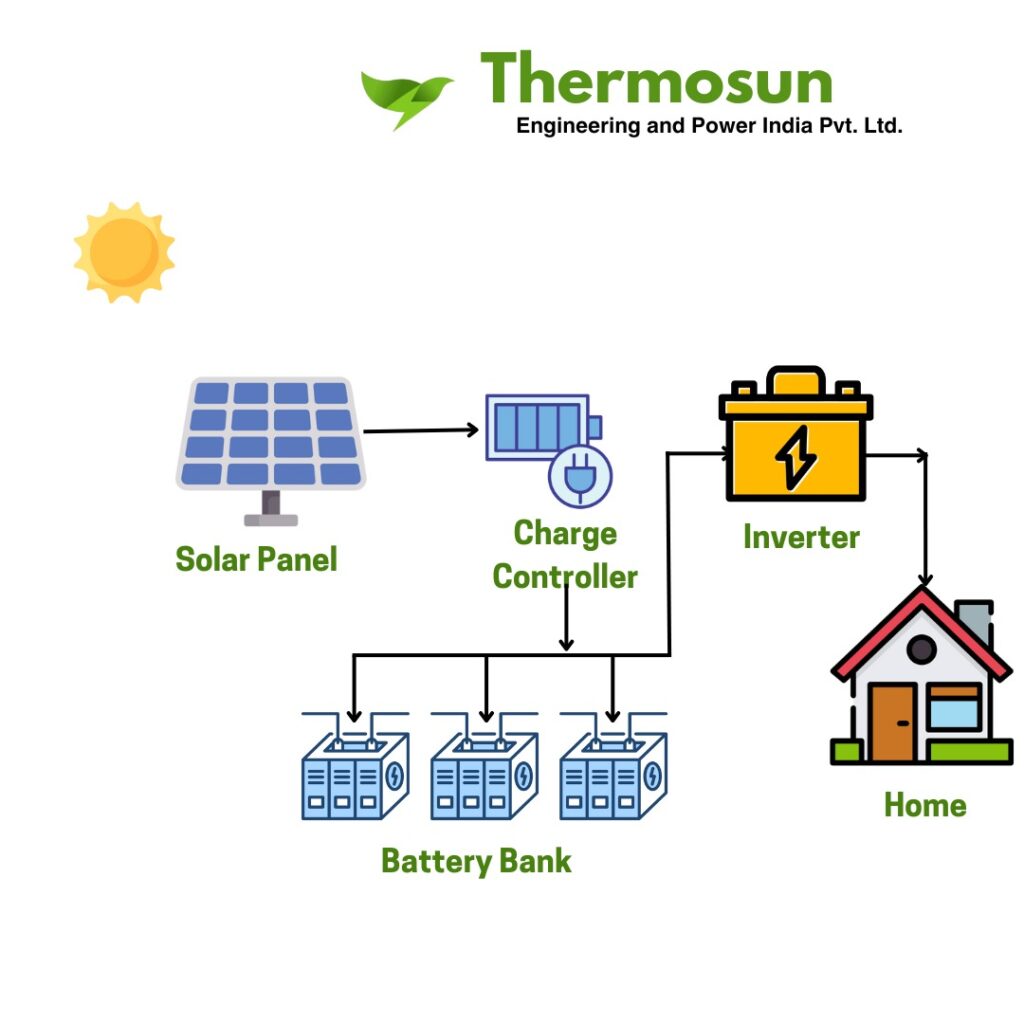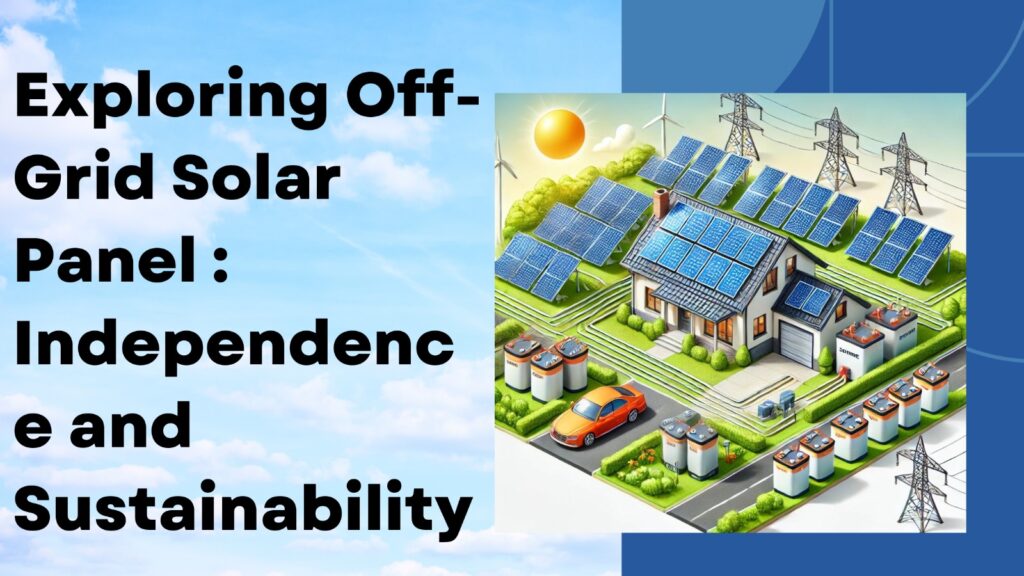Understanding Off-Grid Solar Panel Systems: Harnessing Independence and Sustainability
Off-grid solar panel systems present an appealing option in a world where sustainability and energy independence are becoming more and more important. These systems use solar energy to create electricity for houses, cabins, and other isolated sites without relying on the conventional electrical grid. The design, operation, advantages, and environmental impact of off-grid solar panel systems are all examined in detail in this article.
Understanding Off-Grid Solar Panel Systems
The purpose of off-grid solar panel systems is to operate independently of the centralized electricity grid. They are made up of various essential elements:
1. Solar panels: These devices use photovoltaic cells to absorb solar radiation and transform it into power. Usually, they are placed in locations with the most exposure to the sun, such as on rooftops or on the ground.
2. Charge Controller: To maximize charging and avoid overcharging batteries, the charge controller controls the voltage and current flowing from the solar panels.
3. Battery Bank: When sunlight is scarce, like at night or on cloudy days, batteries are used to store excess electricity produced during sunny hours.
4. Inverter: The Inverter changes direct current (DC) electricity stored in batteries into alternating current (AC) electricity, which powers gadgets and appliances in homes.
5. Backup Generator (Optional): To add further dependability during protracted periods of low sunshine, some off-grid systems come with a backup generator that runs on fossil fuels or renewable energy sources like biodiesel or propane.
Benefits of Off-Grid Solar Panel Systems
Energy Independence and Sustainability
With off-grid solar panel systems, households may produce their own electricity without relying on outside power sources, offering unmatched energy independence. This independence is especially useful in isolated locations where it could be expensive or problematic to connect to the grid. Off-grid technologies lessen dependency on fossil fuels and promote environmental sustainability by reducing carbon emissions through localized electricity generation.
Cost Savings and Long-Term Investment
Because they require batteries and other backup components, off-grid solar panel systems may require a larger initial expenditure than grid-tied systems; however, over time, they can save a substantial amount of money. Homeowners are shielded from shifting power prices and do not have to pay monthly electricity bills. Off-grid systems can produce dependable electricity for decades with the right maintenance, providing a solid return on investment over time.
Environmental Impact
Off-grid solar systems benefit the environment because they lessen the need to generate electricity from fossil fuels. They assist in reducing air pollution and greenhouse gas emissions brought on by conventional power sources. Homeowners may help fight climate change and protect the environment by using solar energy that is renewable.

Installation and Maintenance Considerations
Careful planning and consideration of the following variables are necessary when installing an off-grid solar panel system:
- Site evaluation: To ascertain the location, orientation, and shading characteristics of solar panels, conduct a comprehensive site evaluation.
- System Design: Adapt the system’s dimensions and design to the size of the household, the energy requirements, and the anticipated usage patterns.
- Battery Storage: Choose premium batteries that have the capacity to hold energy at times when there is little to no sunlight.
- Inverter Selection: To ensure effective energy conversion, select an inverter that meets the voltage and capacity requirements of the system.
- Maintenance: To guarantee optimum performance and longevity, routinely clean and examine solar panels, assess the condition of the batteries, and keep an eye on system performance.
Conclusion
A sustainable and powerful way to generate electricity off the grid is with off-grid solar panel installations. Homeowners can attain energy independence, lessen their carbon footprint, and save money over the long run by utilizing the sun’s abundant energy. Even while off-grid systems demand more upkeep and an initial investment, the advantages clearly outweigh the drawbacks. Adopting off-grid solar technology increases resilience and self-sufficiency in an energy landscape that is changing quickly, while also encouraging environmental care.


